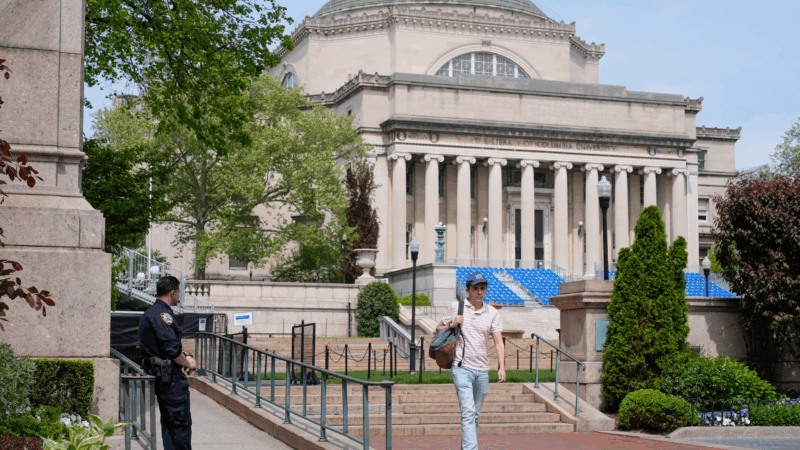Crime in Greater Birmingham: An Increase or Perception?
Ernestine Redmond Washington loves West End.
“West End has got it going on,” says Washington.
She’s worked or lived in the Birmingham neighborhood for 15 years. She says a lot of good things are happening. The city is tearing down abandoned homes. Churches are vibrant. In turn, she’s a known figure in the neighborhood.
“My nickname in the community is ‘Maw Maw,'” says Washington. “It comes from the kids in the community. I love working with the youth.”
She’s also had 19 foster kids.
As much as Washington loves West End, it’s also an area of Birmingham with a higher crime rate in a city that saw homicides rise in 2015. That’s a reversal from the last several years where those numbers dropped to levels not seen in a generation. With that rise and the headlines that come with it, crime is pushing back to the forefront of community conversation.
The View on the Ground
Washington’s best friend Lachone McIntyre say crime does seem to be going up.
“It’s like every other day someone’s being shot. Something is going on,” says McIntyre. “Just five years ago you didn’t hear this.”
She says people are fearful to go out at night. Some churches stopped holding evening Bible studies. Things hit home for Washington last year when she got a call from one of the young men in the neighborhood.
“Maw Maw, I need you. Come right away,” recalls Washington. “I thought he was having an asthma attack cause I knew he has asthma. When I got there he had been shot.”
She says he was only shot in the foot and is ok, but she has a growing list of these types of stories.
Washington she believes police are doing what they can. She adds parents are key to preventing crime. McIntyre says poverty and a lack of economic opportunity in this part of town leaves people desperate.
“Until we address the economic situation, this is going to continue,” says McIntyre.
West End is not the only place where crime is top-of-mind. The murder of an Iraq War veteran in front of his home in Hoover shocked that community.
“In my 30 years here I don’t think I’ve had an outpouring of the community being just upset anything like I’ve seen with the January homicide.” says Hoover Police Chief Nick Derzis.
He says two people have been arrested in connection with that case. And while Hoover’s five homicides in 2015 is an uptick, he’s quick to point out all were solved.
Derzis says one thing he and his law enforcement colleagues around Birmingham have noticed is it seems violent crimes are increasingly committed by teens.
“When these young people commit these crimes, it’s devastating for the people they’re committing them against, the families that are affected, the extended families that are affected,” says Derzis. “It’s just a bad deal all around and none of us really understand why it’s happening.”
Derzis says even though murders grab headlines and capture public attention, that’s not the whole picture. He says robberies, for instance, are flat in Hoover and low for a city of its size.
The Bigger Picture
UAB criminal justice professor John Sloan says that bigger picture is important context.
“Even in communities that have the highest rates of murder in the nation murder is an extremely rare event,” says Sloan.
That’s why it’s news. Just as the media is an incomplete bellwether, anecdotes told among friends aren’t reliable either.
“Because your neighbor’s car was broken into does not mean that the City of Birmingham has more crime this year than it does last year,” says Sloan. “You can’t then generalize to the collective based on the experiences of one person.”
Sloan says even with a rise in homicides in Birmingham and other cities around the country, crime overall is at lows not seen since the 1950s. Nor does a one-year increase constitute a trend. But he says that doesn’t mean we can’t or shouldn’t do something about that increase.
In reversal, Warner Bros. jilts Netflix for Paramount
Warner Bros. says Paramount's sweetened bid to buy the whole company is "superior" to an $83 billion deal it struck with Netflix for just its streaming services, studios, and intellectual property.
Trump’s ballroom project can continue for now, court says
A US District Judge denied a preservation group's effort to put a pause on construction
NASA lost a lunar spacecraft one day after launch. A new report details what went wrong
Why did a $72 million mission to study water on the moon fail so soon after launch? A new NASA report has the answer.
Columbia student detained by ICE is abruptly released after Mamdani meets with Trump
Hours after the student was taken into custody in her campus apartment, she was released, after New York City Mayor Zohran Mamdani expressed concerns about the arrest to President Trump.
These major issues have brought together Democrats and Republicans in states
Across the country, Republicans and Democrats have found bipartisan agreement on regulating artificial intelligence and data centers. But it's not just big tech aligning the two parties.
Feds announce $4.1 billion loan for electric power expansion in Alabama
Federal energy officials said the loan will save customers money as the companies undertake a huge expansion driven by demand from computer data centers.







